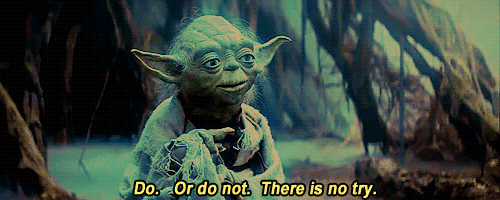I am not a developer, and until I started with iDoneThis as its Chief Happiness Officer, I’m pretty sure I didn’t know any.
It’s taken me some time to understand how to relate to developers. It’s part of my job — I work with them, I’m immersed in the tech world, and many iDoneThis teams are developers. I need to be able to relate in order to understand their pain points, what makes them happy in their work, and what they need from a tool like iDoneThis.

Trying to relate to startup developers through the prism of my earlier profession as a former lawyer didn’t really work. The startup world couldn’t be further from Wall Street law firms and junior attorneys.
So here’s what finally did work. I found the connection through my greatest love, a hobby-turned-obsession: climbing. And coding, I’ve realized, is a lot like climbing.
1. Coders and climbers are really into uncharted territory.
Hackers are often people who harbor a playfulness and a curiosity that outweigh their respect for the rules — and they’re clever enough to get around it. They like to explore, and if there’s red tape or a fence, they’ll go under it or scale it. Climbers, too, are always looking for cliffs, caves, and mountains yet unscaled.
Whenever my brother ventures off into unexplored territory, climbs an unmapped route, or opts to free solo something, he calls it “adventure climbing.” Well, he just adds “adventure” in front of anything he’s doing that is unknown, unconventional, and flouts the rules.
Climbing helped me see hacking as just “adventure computer-ing.”

2. You master coding and climbing the same way.
Coders and climbers achieve success in similar ways. For one, there’s finding a problem that interests you.
Often the starting point for developers seems to be about solving something that they find appealing or stimulating — scratching a personal itch. As Dropbox’s Drew Houston says, “Sometimes you just get this feeling — it’s a compulsion or an obsession. You can’t stop thinking about it. You just have to work on this thing.” And finding this kind of problem to work on optimizes learning.
Climbers also have to be drawn to a problem — a certain mountain, cave, crack, tower, or even a particular rock feature. They have to be intrigued by and embrace the technique required to surmount it. They have to believe that they will learn something about their bodies and about climbing that kind of problem. And then they figure out, somehow, how to go up.
Second, in order to succeed at startups, there’s an emphasis on “doing” — just doing it and getting it out there, even if it needs reworking and rewriting later. It’s the “release early, release often” mentality. Do it, even if you’re a beginner and even if you’re likely to fail. Do it even if bigger companies have already tried.

Climbing is the same. Do the problem even if you’re going to fall, do the route even if it’s harder than anything you’ve ever done before — and you’ll learn. You’ll learn to climb that hard, or you’ll learn what made you fall, or you’ll learn that the rock is not at all how you thought it would be. As Eric Raymond says, “the most striking and innovative solutions come from realizing that your concept of the problem was wrong.”
Third, do differently.
A startup can’t do what other startups do, and there’s great power in the simplest motions whereas others can get caught up in show-offy, swaggery moves. In climbing, too, if ten people before you are trying to come at the problem one way and are all failing, then you should do something different. Try putting your left foot where everybody is putting their right foot.
You can climb the problem, or you can get caught up doing acrobatic tricks and competitive feats of strength on the problem. If everyone is climbing the problem with some impressive, fancy moves but they’re failing to finish, do you (a) try to do the impressive, fancy moves even better than they are doing it or (b) realize the fancy moves aren’t working and try something else?
3. Coders and climbers have cuddly communities.
Hacking is something that starts at a personal level, an individual’s curiosity, a challenge between friends. It doesn’t necessarily start with grand designs. But somewhere along the way, you build on what you made, you meet others who join you in the endeavor, you start a company, you become part of a community.

Climbers start off simply as seeing a rock face and wanting to go to the top of it, just for the entertainment and satisfaction of yourself and your friends. You start training, you meet other climbers, you obsess over famous routes, you stick an Access Fund sticker on your Subaru, and lo and behold, you’ve joined the “climbing bum community.”
For both hackers and climbers, your passion project paves the way into a community and part of a culture. And what a cuddly culture it is. Perhaps the most salient shared feature is how collaborative hacker and climber culture are.
There’s no question that both worlds are fiercely competitive. Startups have an exceedingly low rate of success, and in the climbing world, only one person can be the first to ascend a route and name it for all of posterity. In the face of competition, however, the startup community and the climbing community are uniquely collaborative and full of camaraderie. They’re not dog-eat-dog worlds the way banking, law, and professional ice skating are.
Coders share workspaces, crash on each other’s couches, support each other’s startups, dispense advice, promote each other’s apps, wear each other’s startup shirts, buy each other tacos. Climbers are the same way. We train together, share each other’s tents, cheer each other on, catch each other when we fall (literally), dispense advice and we also buy each other tacos.
Climbers and coders both occupy a world where working with the competition not only makes you better but increases your odds of success.
In coding and climbing, you have to do without the assurance of success, even when you’re not as comfortable or ready to take action as you’d like to be. And you have to do it fearlessly and with curiosity, taking on unexplored challenges or attempting unexplored solutions to familiar problems.
You can never settle for what everyone else is doing, because being unique in some aspect is necessary to your success. It’s equally necessary to your success to support, promote and work with your competitors.
If you can think of something in your life that requires the same — a job, an intellectual pursuit or a hobby — then you’ll start understanding software developers even if you’re not one yourself. And if you can understand what makes a developer tick in terms of whatever makes you tick, then you’re suddenly better equipped to support developers and succeed in the startup world.
Liked this post? Subscribe to our free newsletter for more great content on productivity, startups, and how to work better!
